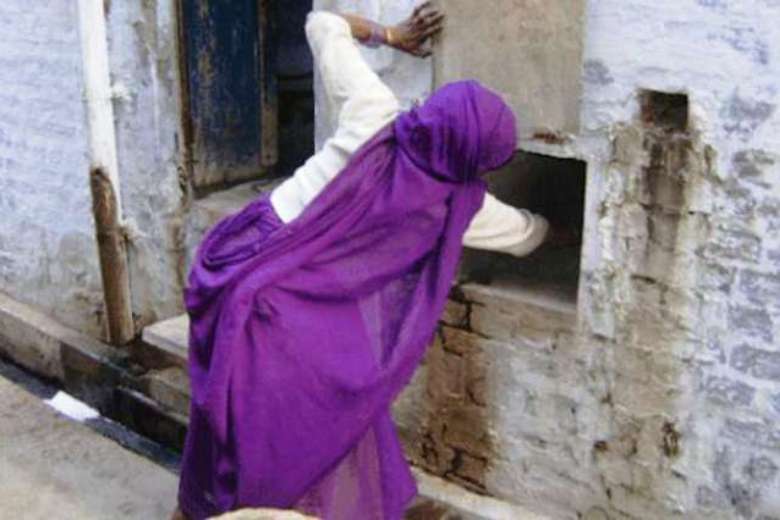Activist says at least 45 people died while clearing human and other waste from sewers and septic tanks in 2021

A female manual scavenger cleans a dry pit latrine by hand in an Indian town. (Photo supplied)
The Indian government’s denial of deaths due to the inhuman and hazardous practice of manual scavenging in the country has surprised and hurt a leading Dalit Christian activist.
Federal Social Justice and Empowerment Minister Ramdas Athawale told the Indian parliament on March 15 that not a single death had been reported due to manual scavenging last year.
The minister, however, admitted to 325 deaths due to accidents that occurred while cleaning sewers and septic tanks during the past five years.
Wilson told UCA News that he did not expect such an irresponsible statement from the minister. “According to our findings, at least 45 people have died due to manual scavenging in 2021 alone, with Karnataka accounting for at least five deaths.”
He further called the minister’s statement in parliament “misleading and incomplete” while adding that the government’s failure to acknowledge the casualties was “disheartening.”
The federal, provincial and several municipal governments have introduced mechanized sewage clearing systems but humans continued to be employed
“It is an insult to the families of manual scavengers,” said Wilson, who founded the Safai Karmachari Andolan (manual scavengers’ movement) in 1994.
He said the federal government liked to publicize its Swachh Bharat Abhiyan (Clean India Mission) to the world but failed to admit deaths due to manual scavenging, preferring to register them as accidental deaths.
Wilson explained deaths during manual scavenging were a regular occurrence across India as the age-old practice involved clearing human excreta and other waste by entering the sewer manholes and septic tanks.
He said that the degrading and hazardous practice had been outlawed, yet more than 1.3 million Dalits, mostly women, were compelled by their low caste status to continue with it to earn a living.
The federal, provincial and several municipal governments have introduced mechanized sewage clearing systems but humans continued to be employed.
“It is a thankless task which earns them a few rupees a day,” said Wilson.
Father Nicholas Barla, secretary of the Indian Catholic bishops’ commission for tribal affairs, told UCA News that “manual scavenging is the biggest insult to a human being we can think of.”
The priest said he was not surprised by the response from the government. “No government is serious about helping the poor and voiceless,” Father Barla added.
